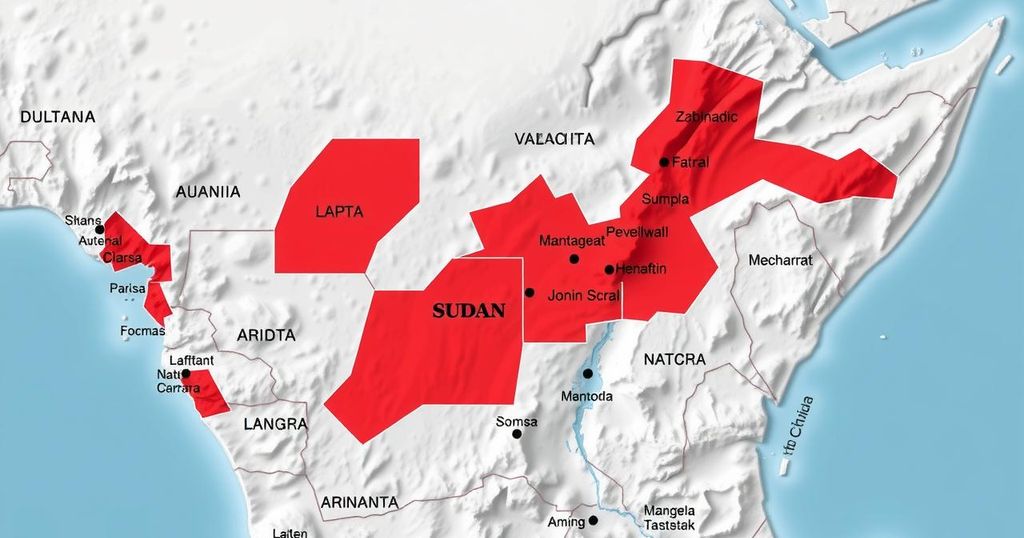The Critical Juncture of Sudan’s Civil War: Implications and Future Prospects

Sudan’s civil war is at a pivotal stage following military victories over the RSF in Khartoum. The ongoing conflict has resulted in substantial loss of life and displacement. The formation of rival governments by the military and RSF complicates the peace process, indicating a potential partition of the nation. Allegations of human rights violations persist against both factions.
The ongoing civil conflict in Sudan is at a crucial point following nearly two years of violence, which has resulted in countless fatalities and mass displacement. Recent military victories against the paramilitary Rapid Support Forces (RSF) indicate a shift in the power dynamic, with control over Khartoum claimed by the military, though the RSF has not conceded this loss.
Since the onset of fighting in April 2023, violence erupted between the military and RSF, who had previously collaborated to obstruct the transition to civilian governance initiated by a popular uprising in 2019. The clash for dominance has resulted in approximately 28,000 deaths; however, the actual figure likely exceeds this. Moreover, over 14 million individuals have been forcibly displaced, and many regions are facing famine.
The military’s reclaiming of Khartoum suggests a potential division of Sudan into territories governed by either military or RSF influences. Military leader General Abdel-Fattah Burhan has shown no intention of pursuing a peace settlement, while the RSF, led by General Mohamed Hamdan Dagalo, is resolute in continuing its fight, maintaining significant control in Western Sudan, particularly Darfur.
The creation of a ‘parallel government’ by the RSF is notably significant. In February, the RSF and its allies formalized their administration structure in a charter aimed at promoting a decentralized, democratic state that recognizes Sudan’s diverse communities. Concurrently, Burhan has also hinted at forming a transitional government, fomenting competition between two factions and solidifying Sudan’s division.
The RSF traces its origins to the Janjaweed militias, known for committing grave atrocities in Darfur. Although the RSF faces accusations of ongoing human rights abuses, including genocide, it staunchly denies such allegations. The military is similarly accused of violations but refutes these claims as well.
In summary, Sudan’s civil war continues to escalate as military control of Khartoum marks a significant shift in the conflict. The emergence of competing administrations could further entrench divisions within the country. Despite military advances, the path to peace remains uncertain as both factions display a reluctance to engage in dialogue, exacerbating the humanitarian crisis affecting millions.
Original Source: www.newsday.com








